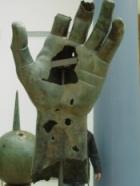Tribal Group is a well diversified outsourcing company serving the public sector in the UK and overseas. It handles inspections for OFTSTED, housing and regeneration projects, and a whole bundle of consulting projects and services for councils and ministries. Besides the UK, it has exposure to Australia and the Middle East. Its recent interim results were robust, with revenues up 11%, and it raised the interim dividend.
So why is it sitting on a PE of 5?
One of the answers is the fact that it came a cropper in 2004 as a result of indigestion after , the group made a few too many acquisitions. It acquired nine businesses in the first two years after its flotation in 2001; many analysts believed it would build up into a rival to the gorilla of outsourcing, Capita. Like many acquisitive groups, it hadn't expended enough effort on understanding and integrating the businesses properly – and saw margins slide, with a series of profit warnings. The share price dived, and though CEO Henry Pitman survived in the short term, he stepped down in 2007.
The co's credibility has obviously suffered. A £6m net loss in 2007, as the company took a restructuring hit under new CEO Peter Martin, didn't help. At the same time, with all three major political parties advocating savage cuts in public spending, Tribal's business model doesn't look as attractive as it used to. Some of the result of tightening in public sector budgets has already been seen, with services which rely on property development – regeneration, new buildings for schools, housing associations – showing weak results.
Take a closer look though, and the company doesn't seem horribly skewed towards the worst affected areas. While education accounts for 42% of the revenue, its high margin – 13.5% last year , well above the other activities in the group – makes it the biggest contributor to profit. On the other hand support services, which include planning and regeneration, probably the most likely to suffer, accounts for only 18% of revenues – and has the lowest margin in the group, at 4.4%] [1]
The interim results were reasonably robust. Sales increased by 11%, and while adjusted pre-tax fell slightly, from £9.1m to £8.5m,that was after a £800,000 restructuring cost. Management felt sufficiently confident of the full year outcome to increase the interim dividend by 10%.
That quite…






